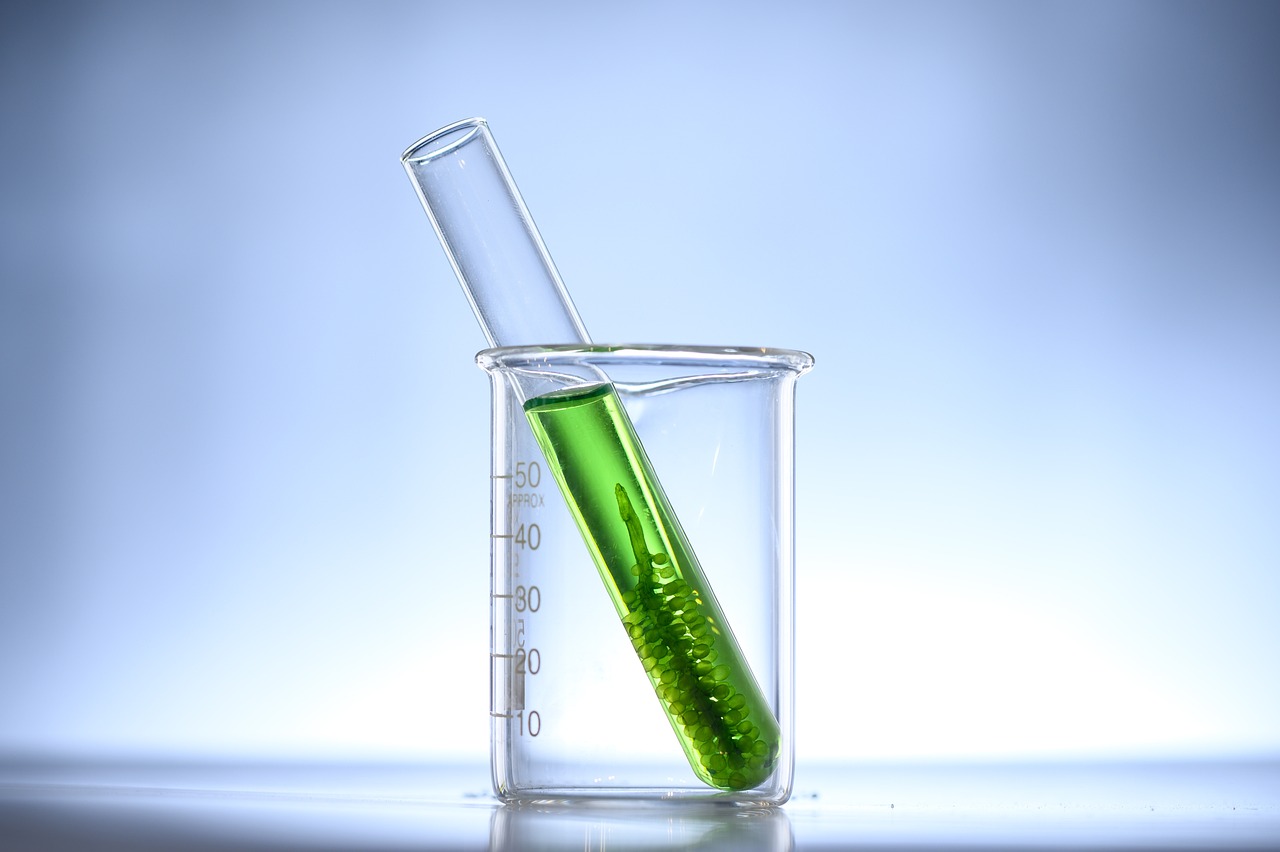This article delves into the importance of Vitamin B12, examining its numerous benefits, dietary sources, and its crucial role in energy levels and overall health. By the end of this guide, readers will have a comprehensive understanding of this essential nutrient.
What is Vitamin B12?
Vitamin B12, also known as cobalamin, is a water-soluble vitamin that is vital for several bodily functions. It plays a significant role in DNA synthesis, the formation of red blood cells, and energy metabolism, making it indispensable for maintaining health.
Health Benefits of Vitamin B12
- Energy Production: This vitamin assists in converting carbohydrates into glucose, which the body utilizes for energy, helping to combat fatigue.
- Red Blood Cell Formation: B12 is essential for producing red blood cells that carry oxygen, ensuring optimal energy levels throughout the body.
- Prevention of Anemia: Adequate B12 intake is crucial to prevent pernicious anemia, characterized by weakness and fatigue.
- Cognitive Function: Studies suggest that sufficient B12 levels can enhance memory and mood, potentially lowering the risk of cognitive decline.
Sources of Vitamin B12
Vitamin B12 is primarily found in animal products. Here are some key sources:
- Animal-Based Sources: Meat, fish, poultry, and dairy products are rich in B12.
- Plant-Based Alternatives: For vegetarians and vegans, fortified cereals and plant-based milks, along with supplements, can help meet B12 needs.
Signs of Vitamin B12 Deficiency
Recognizing the symptoms of B12 deficiency is crucial:
- Fatigue and Weakness: A common sign due to decreased red blood cell production.
- Neurological Symptoms: Numbness, tingling, and cognitive difficulties may occur.
How Much Vitamin B12 Do You Need?
The recommended dietary allowance (RDA) varies, with adults generally needing about 2.4 micrograms per day. Special populations, such as pregnant women and older adults, may require higher amounts.
Supplementing with Vitamin B12
For those who cannot get enough B12 from their diet, supplements are available in various forms:
- Types of Supplements: Options include tablets, sublinguals, and injections.
- Consulting a Healthcare Professional: It’s advisable to discuss supplementation with a healthcare provider to determine the right dosage.
Conclusion: The Importance of Vitamin B12
Vitamin B12 is crucial for energy production and overall health. Ensuring sufficient intake through diet or supplements can significantly improve well-being and prevent deficiency-related issues.

What is Vitamin B12?
Unlocking the Energy-Enhancing Power of Vitamin B12
Vitamin B12, scientifically known as cobalamin, is a vital water-soluble vitamin that plays a significant role in numerous physiological functions. It is essential for the synthesis of DNA and the formation of red blood cells, both of which are crucial for maintaining optimal health. This vitamin is particularly important for energy metabolism, as it aids in the conversion of food into usable energy for the body.
Vitamin B12 is a unique vitamin that is primarily found in animal-based foods, making it essential for those who consume a balanced diet rich in these products. It is not only a key player in energy production but also supports neurological function and overall cellular health. Without adequate levels of Vitamin B12, individuals may experience various health complications, including fatigue and cognitive decline.
Health Benefits of Vitamin B12
- Energy Production: Vitamin B12 is integral to the process of converting carbohydrates into glucose, the body’s primary energy source. This function helps to combat feelings of fatigue and enhances overall vitality.
- Red Blood Cell Formation: A sufficient intake of Vitamin B12 is crucial for the production of red blood cells, which transport oxygen throughout the body, ensuring that each cell receives the energy it needs to function efficiently.
- Prevention of Anemia: A deficiency in Vitamin B12 can lead to pernicious anemia, characterized by weakness and fatigue. Maintaining adequate levels can prevent this condition and support sustained energy levels.
Sources of Vitamin B12
Vitamin B12 is predominantly found in animal-derived foods, including:
- Meat: Beef, lamb, and pork are rich sources.
- Fish: Salmon, trout, and tuna provide substantial amounts.
- Dairy Products: Milk, cheese, and yogurt are excellent sources for those who consume them.
- Eggs: A versatile source of Vitamin B12 for many diets.
For vegetarians and vegans, fortified foods such as cereals and plant-based milk, along with supplements, can help meet daily Vitamin B12 needs and prevent deficiency.
Conclusion
In summary, Vitamin B12 is an indispensable nutrient that plays a crucial role in energy production, red blood cell formation, and overall health. Ensuring an adequate intake through diet or supplementation is vital for maintaining energy levels and preventing deficiency-related health issues.

Health Benefits of Vitamin B12
Vitamin B12, also known as cobalamin, is a vital nutrient that plays a significant role in various bodily functions. Its importance cannot be overstated, as it contributes to overall health and well-being in numerous ways. Below, we explore the incredible health benefits of Vitamin B12, emphasizing its role in energy production, cognitive function, and heart health.
- Boosts Energy Levels: One of the most celebrated benefits of Vitamin B12 is its ability to enhance energy levels. It aids in the conversion of carbohydrates into glucose, which the body utilizes as fuel. This process helps to combat fatigue and promotes a sense of vitality.
- Supports Cognitive Function: Vitamin B12 is crucial for maintaining brain health. It is linked to improved memory and cognitive performance, potentially reducing the risk of cognitive decline as we age. Adequate levels of this vitamin may also help alleviate symptoms of depression and anxiety.
- Promotes Heart Health: Vitamin B12 plays a role in reducing homocysteine levels, an amino acid linked to an increased risk of heart disease. By maintaining healthy homocysteine levels, Vitamin B12 contributes to cardiovascular health.
- Essential for Red Blood Cell Formation: This vitamin is vital for the production of red blood cells, which are responsible for transporting oxygen throughout the body. Adequate Vitamin B12 levels ensure that all body tissues receive the oxygen they need for optimal function.
- Prevents Anemia: A deficiency in Vitamin B12 can lead to pernicious anemia, characterized by fatigue and weakness. Ensuring sufficient intake of this nutrient helps prevent anemia and maintain robust energy levels.
In conclusion, Vitamin B12 is a powerhouse nutrient that supports various aspects of health, from boosting energy levels to enhancing cognitive function. Ensuring adequate intake through diet or supplementation is essential for maintaining overall well-being.
Energy Production
is a vital process in the human body, and one of the key players in this mechanism is Vitamin B12. This essential vitamin, also known as cobalamin, plays a crucial role in converting carbohydrates into glucose, which serves as the primary fuel for our cells. Without adequate levels of Vitamin B12, our bodies struggle to produce the energy necessary for daily activities, leading to feelings of fatigue and lethargy.
When we consume carbohydrates, our bodies break them down into glucose. However, this process requires Vitamin B12 to function efficiently. By facilitating the conversion of carbohydrates into glucose, Vitamin B12 ensures that our energy levels remain stable and robust. This is particularly important for individuals with active lifestyles or those who engage in regular physical activity, as their energy demands are higher.
Moreover, Vitamin B12 is not only essential for energy production but also plays a significant role in the formation of red blood cells. These cells are responsible for transporting oxygen throughout the body, which is vital for maintaining energy levels. A deficiency in Vitamin B12 can lead to a decrease in red blood cell production, causing anemia and further exacerbating feelings of fatigue.
In addition to its role in energy metabolism, Vitamin B12 supports neurological health. Adequate levels of this vitamin are linked to improved cognitive function and mood stability. Thus, ensuring sufficient Vitamin B12 intake can help mitigate fatigue not just physically but also mentally.
To maintain optimal energy levels, it is essential to include Vitamin B12-rich foods in your diet, such as meat, fish, dairy products, and fortified cereals. For those who may not get enough from dietary sources, supplements can be an effective way to bolster Vitamin B12 levels and enhance overall vitality.
In conclusion, Vitamin B12 is a powerhouse nutrient that is indispensable for energy production and overall health. Regularly incorporating this vitamin into your diet can significantly improve your energy levels, reduce fatigue, and promote a sense of well-being.
Red Blood Cell Formation
is an essential process in the human body, significantly influenced by Vitamin B12. This vitamin plays a pivotal role in the synthesis of red blood cells, which are crucial for transporting oxygen to tissues and organs. Without adequate Vitamin B12, the body struggles to produce enough healthy red blood cells, leading to various health issues.
Vitamin B12, also known as cobalamin, is vital for the process of hematopoiesis, the formation of blood cellular components. It works in conjunction with other nutrients, such as folate and iron, to ensure the effective production of red blood cells. When Vitamin B12 levels are insufficient, the resulting red blood cells can become abnormally large and dysfunctional, a condition known as megaloblastic anemia.
Here are some key points regarding the importance of Vitamin B12 in red blood cell formation:
- Oxygen Transport: Healthy red blood cells are essential for transporting oxygen throughout the body. Oxygen is critical for cellular metabolism and energy production.
- Prevention of Anemia: A deficiency in Vitamin B12 can lead to anemia, characterized by symptoms like fatigue, weakness, and pale skin. Ensuring adequate intake can help prevent these conditions.
- Cellular Health: Vitamin B12 supports the overall health of cells, including those involved in the immune response, ensuring a well-functioning body.
Sources of Vitamin B12 include animal products such as meat, fish, dairy, and eggs. For those following a plant-based diet, fortified foods and supplements are essential to maintain adequate levels.
In conclusion, maintaining sufficient levels of Vitamin B12 is crucial for effective red blood cell formation and overall health. Regular monitoring and dietary adjustments can help ensure that your body has the necessary nutrients to function optimally.
Prevention of Anemia
is a crucial aspect of maintaining overall health and vitality. Anemia, particularly pernicious anemia, is often linked to a deficiency in Vitamin B12, which can lead to significant fatigue and weakness. Understanding how to prevent this condition is vital for individuals seeking to enhance their energy levels and overall well-being.
Vitamin B12, also known as cobalamin, plays a pivotal role in the formation of red blood cells. These cells are responsible for transporting oxygen throughout the body, ensuring that all organs and tissues receive the necessary energy to function optimally. A deficiency in this essential vitamin can disrupt this process, leading to decreased red blood cell production and, consequently, anemia.
To prevent anemia, it is important to ensure adequate intake of Vitamin B12 through various dietary sources. Here are some effective strategies:
- Incorporate Animal Products: Foods such as meat, fish, poultry, eggs, and dairy are rich in Vitamin B12. Regular consumption of these items can help maintain sufficient levels in the body.
- Consider Fortified Foods: For those following a vegetarian or vegan diet, fortified cereals and plant-based milk are excellent alternatives that can provide necessary Vitamin B12.
- Utilize Supplements: If dietary sources are insufficient, Vitamin B12 supplements can be beneficial. They come in various forms, including tablets and injections, and can help bridge the gap for individuals at risk of deficiency.
Recognizing the early signs of Vitamin B12 deficiency is equally important. Symptoms such as persistent fatigue, weakness, and neurological issues should prompt individuals to seek medical advice. Regular check-ups and blood tests can help monitor Vitamin B12 levels and prevent anemia before it becomes a significant health concern.
In conclusion, preventing anemia through adequate Vitamin B12 intake is essential for maintaining energy levels and overall health. By understanding dietary sources, recognizing symptoms, and considering supplementation when necessary, individuals can effectively safeguard against this condition.
Cognitive Function and Mood
Vitamin B12, also known as cobalamin, is a vital nutrient that plays an essential role in maintaining brain health. Research has shown that adequate levels of Vitamin B12 are crucial for enhancing cognitive function and stabilizing mood. Deficiencies in this important vitamin can lead to significant cognitive decline and mood disorders, including depression.
Studies have indicated that individuals with higher levels of Vitamin B12 tend to exhibit better memory and mental clarity. This is because Vitamin B12 is involved in the synthesis of neurotransmitters, which are chemicals that facilitate communication between nerve cells. A well-functioning nervous system is critical for optimal brain performance, and Vitamin B12 contributes to this process by supporting the production of myelin, the protective sheath around nerves.
Furthermore, low levels of Vitamin B12 have been linked to an increased risk of mood disorders. Individuals experiencing symptoms of anxiety and depression may benefit from ensuring they have sufficient Vitamin B12 in their diets. Some studies suggest that supplementation could help alleviate these symptoms, particularly in those who are deficient.
It is important to note that while Vitamin B12 can support cognitive function and mood, it is not a standalone solution. A balanced diet, regular physical activity, and mental exercises are also necessary for maintaining brain health. Incorporating Vitamin B12-rich foods such as meat, fish, dairy, and fortified cereals can help individuals meet their nutritional needs.
In conclusion, maintaining adequate levels of Vitamin B12 is essential for cognitive function and mood stability. By prioritizing this nutrient in our diets, we can enhance our mental health and potentially reduce the risk of cognitive decline as we age.

Sources of Vitamin B12
Vitamin B12, also known as cobalamin, is an essential nutrient that plays a pivotal role in various bodily functions, including the production of red blood cells and DNA synthesis. This vitamin is predominantly found in animal-based foods, making it crucial for individuals to understand the sources of Vitamin B12, especially those at risk of deficiency, such as vegetarians and vegans.
Animal-Based Sources
- Meat: Red meats, such as beef and lamb, are among the richest sources of Vitamin B12. A single serving can provide more than the daily recommended intake.
- Poultry: Chicken and turkey also contain significant amounts of Vitamin B12, making them excellent choices for those looking to boost their intake.
- Fish: Fatty fish like salmon, trout, and sardines are not only good sources of Vitamin B12 but also provide healthy omega-3 fatty acids.
- Dairy Products: Milk, cheese, and yogurt are excellent sources of Vitamin B12, offering an easy way to incorporate this vital nutrient into the diet.
- Eggs: Eggs, particularly the yolks, contain Vitamin B12 and can be an important source for those who consume them.
Plant-Based Alternatives
For vegetarians and vegans, obtaining Vitamin B12 can be challenging, but there are several alternatives available:
- Fortified Foods: Many cereals, plant-based milks, and nutritional yeast are fortified with Vitamin B12, providing a viable option for those avoiding animal products.
- Supplements: Vitamin B12 supplements, available in various forms such as tablets and sublinguals, can effectively help individuals meet their nutritional needs.
Understanding the diverse sources of Vitamin B12 is essential for maintaining optimal health, particularly for those who follow a vegetarian or vegan diet. Regularly incorporating these foods or supplements can help prevent deficiency and support overall well-being.
Animal-Based Sources
of Vitamin B12 are essential for maintaining optimal health and energy levels. This vital nutrient is predominantly found in various animal-derived foods, making them a crucial part of a balanced diet, especially for individuals seeking to enhance their energy and overall well-being.
Vitamin B12, or cobalamin, is not produced by the body and must be obtained through dietary sources. Here are some of the primary animal-based sources:
- Meat: Red meats, such as beef and lamb, are excellent sources of Vitamin B12. A standard serving can provide a substantial amount of the daily recommended intake.
- Poultry: Chicken and turkey also contribute to Vitamin B12 levels, making them a good choice for those looking to diversify their protein sources.
- Fish: Fatty fish like salmon, trout, and sardines are not only rich in Omega-3 fatty acids but also packed with Vitamin B12, supporting both heart and brain health.
- Dairy Products: Milk, cheese, and yogurt are significant sources of Vitamin B12 and can be easily incorporated into various meals and snacks.
- Eggs: Eggs are another versatile source of Vitamin B12, particularly in the yolk, making them a great addition to breakfast or salads.
For individuals who consume a diet rich in these animal-based products, achieving adequate Vitamin B12 intake is generally manageable. However, it’s important to be aware of the potential risks of deficiency, especially for those who are vegetarian or vegan, as plant-based sources of Vitamin B12 are limited and often require fortified foods or supplements.
In conclusion, incorporating a variety of these animal-based foods into your diet can significantly enhance your Vitamin B12 levels, supporting energy production and overall health. Always consider consulting a healthcare professional if you have concerns about your Vitamin B12 intake or dietary choices.
Plant-Based Alternatives
For those following a vegetarian or vegan lifestyle, obtaining sufficient Vitamin B12 can be a challenge, as this essential nutrient is primarily found in animal-based products. However, there are several effective strategies to ensure adequate intake and maintain optimal health.
- Fortified Foods: Many brands of cereals, nutritional yeast, and plant-based milk are fortified with Vitamin B12. These products are designed to help individuals meet their daily requirements.
- Nutritional Yeast: This popular vegan ingredient not only adds a cheesy flavor to dishes but is also fortified with Vitamin B12, making it a great addition to soups, salads, and pasta.
- Supplements: For those who may have difficulty absorbing B12 from fortified foods, supplements are an effective alternative. They come in various forms, including tablets, sublinguals, and sprays, which can enhance absorption.
- Plant-Based Protein Sources: While they may not naturally contain Vitamin B12, incorporating a variety of plant-based proteins, such as legumes and tofu, alongside fortified foods can help in overall nutrient balance.
It is crucial for vegetarians and vegans to monitor their Vitamin B12 intake closely. Regular blood tests can help detect any deficiencies early, allowing for timely intervention through dietary adjustments or supplementation.
In summary, while Vitamin B12 is predominantly found in animal products, there are plenty of available. By incorporating fortified foods and considering supplements, individuals can effectively manage their Vitamin B12 levels, ensuring they maintain their energy metabolism and overall health.

Signs of Vitamin B12 Deficiency
Recognizing the signs of Vitamin B12 deficiency is essential for ensuring timely intervention and maintaining overall health. This water-soluble vitamin plays a vital role in numerous bodily functions, and its deficiency can lead to serious health issues. Understanding the symptoms associated with Vitamin B12 deficiency can help individuals identify potential problems early and seek appropriate treatment.
- Fatigue: One of the most prevalent symptoms is persistent fatigue. This occurs because Vitamin B12 is crucial for red blood cell production, which is responsible for transporting oxygen throughout the body. When levels are low, the body struggles to deliver adequate oxygen, leading to feelings of tiredness.
- Weakness: Alongside fatigue, individuals may experience a general weakness. This can affect daily activities and reduce overall quality of life.
- Neurological Issues: Vitamin B12 deficiency can also manifest in neurological symptoms such as numbness and tingling in the hands and feet. These sensations can be unsettling and may indicate nerve damage if left untreated.
- Cognitive Difficulties: Cognitive function can decline with a lack of Vitamin B12. Individuals may experience memory loss, confusion, and difficulty concentrating, which can be mistaken for normal aging or stress.
- Mood Changes: Deficiency may lead to mood disturbances, including depression and irritability. Since Vitamin B12 is linked to brain health, maintaining adequate levels is crucial for emotional well-being.
Timely recognition of these symptoms is vital for preventing complications such as anemia and long-term neurological damage. If you suspect a deficiency, it is advisable to consult a healthcare professional for diagnosis and potential treatment options.
In summary, being aware of the signs of Vitamin B12 deficiency is crucial for maintaining health and vitality. If you experience any of the symptoms mentioned above, seek medical advice to ensure you receive the appropriate care and support.
Fatigue and Weakness
are two of the most common symptoms associated with Vitamin B12 deficiency. This condition can significantly affect an individual’s daily life, leading to a decrease in productivity and overall well-being. Understanding the underlying mechanisms of these symptoms is essential for recognizing the importance of maintaining adequate Vitamin B12 levels.
Vitamin B12, also known as cobalamin, plays a vital role in the production of red blood cells. When there is a deficiency, the body struggles to produce enough healthy red blood cells, which are crucial for transporting oxygen to various tissues and organs. This impaired oxygen transport can lead to feelings of persistent fatigue and weakness, as the body’s cells are not receiving the necessary energy to function optimally.
Moreover, Vitamin B12 is essential for energy metabolism. It aids in converting carbohydrates into glucose, the primary fuel source for our bodies. Without sufficient B12, this process becomes less efficient, resulting in decreased energy levels and increased fatigue. Individuals may find themselves feeling more tired than usual, even after adequate rest.
In addition to fatigue, weakness is another debilitating symptom of Vitamin B12 deficiency. As the body struggles to produce enough red blood cells, individuals may experience muscle weakness and an overall lack of strength. This can hinder daily activities and reduce the quality of life.
It is crucial to recognize these symptoms early and consult with a healthcare professional if they persist. A blood test can determine Vitamin B12 levels, and appropriate dietary adjustments or supplements can be recommended to restore optimal health.
In conclusion, understanding the relationship between Vitamin B12 deficiency and symptoms like fatigue and weakness is vital for maintaining overall health. By ensuring adequate intake through diet or supplementation, individuals can enhance their energy levels and improve their quality of life.
Neurological Symptoms
related to Vitamin B12 deficiency can manifest in various ways, significantly affecting an individual’s quality of life. Understanding these symptoms is crucial for early detection and intervention.
Vitamin B12 plays a vital role in maintaining the health of the nervous system. When levels of this essential vitamin are insufficient, it can lead to a range of neurological issues, which may include:
- Numbness and Tingling: Often described as a “pins and needles” sensation, this symptom occurs due to nerve damage caused by a lack of Vitamin B12. It commonly affects the hands and feet.
- Cognitive Difficulties: Insufficient Vitamin B12 can impair cognitive functions, leading to memory loss, confusion, and difficulty concentrating. This can be particularly concerning for older adults.
- Balance and Coordination Issues: Vitamin B12 deficiency may affect coordination and balance, increasing the risk of falls and accidents.
- Depression and Mood Changes: There is a notable link between Vitamin B12 levels and mental health. Low levels can contribute to mood swings, depression, and anxiety.
Recognizing these symptoms early can lead to timely diagnosis and treatment. If you experience any of these signs, it is essential to consult with a healthcare professional for appropriate testing and intervention.
In summary, maintaining adequate levels of Vitamin B12 is crucial for neurological health. Ensuring a balanced diet rich in this vitamin or considering supplementation under professional guidance can help mitigate these risks and support overall well-being.

How Much Vitamin B12 Do You Need?
Understanding the recommended dietary allowance (RDA) for Vitamin B12 is essential for maintaining optimal health and preventing deficiency, particularly for vulnerable populations. Vitamin B12, a vital water-soluble vitamin, plays a crucial role in various bodily functions. This article will delve into the specifics of Vitamin B12 requirements, ensuring you have all the necessary information to make informed dietary choices.
The Recommended Dietary Allowance (RDA) for Vitamin B12 varies depending on age, sex, and life stage. For most adults, the RDA is approximately 2.4 micrograms per day. However, this requirement increases for specific groups, such as pregnant and breastfeeding women, who may need up to 2.6 to 2.8 micrograms respectively. Understanding these nuances is crucial for ensuring adequate intake.
In addition to age and gender, certain health conditions can affect Vitamin B12 absorption. For instance, older adults and individuals with gastrointestinal disorders may have a reduced ability to absorb this essential nutrient. As a result, they might require higher doses or even consider supplementation to meet their needs.
| Group | RDA for Vitamin B12 (micrograms/day) |
|---|---|
| Adults | 2.4 |
| Pregnant Women | 2.6 |
| Breastfeeding Women | 2.8 |
| Older Adults | Varies (may need higher intake) |
For individuals following vegetarian or vegan diets, finding adequate sources of Vitamin B12 can be challenging. Fortified foods and supplements are often necessary to prevent deficiency. Regularly checking B12 levels through blood tests can help ensure that dietary needs are being met effectively.
In conclusion, understanding how much Vitamin B12 you need is crucial for maintaining overall health. By recognizing the specific requirements based on age, gender, and health status, you can take proactive steps to ensure adequate intake, thereby preventing potential deficiencies and supporting your well-being.
Recommended Dietary Allowance
The Recommended Dietary Allowance (RDA) for Vitamin B12 is an essential aspect of nutritional guidelines that varies based on factors such as age, gender, and specific life stages. For most adults, the RDA is approximately 2.4 micrograms per day. This amount is crucial for maintaining optimal energy levels and supporting overall health.
Age and Gender Variations
- Children aged 1-3 years: 0.9 mcg/day
- Children aged 4-8 years: 1.2 mcg/day
- Children aged 9-13 years: 1.8 mcg/day
- Teen boys aged 14-18 years: 2.4 mcg/day
- Teen girls aged 14-18 years: 2.4 mcg/day
- Adult men: 2.4 mcg/day
- Adult women: 2.4 mcg/day
- Pregnant women: 2.6 mcg/day
- Lactating women: 2.8 mcg/day
Importance of Adequate Intake
Maintaining the recommended levels of Vitamin B12 is vital for several bodily functions, particularly energy metabolism. Insufficient intake can lead to fatigue, weakness, and even neurological issues. This is particularly important for individuals in certain demographics, such as the elderly, pregnant women, and those with absorption challenges.
Sources of Vitamin B12
The primary sources of Vitamin B12 include animal products such as meat, dairy, and eggs. For those following a vegetarian or vegan diet, fortified foods and supplements are crucial to meet the daily requirements.
Conclusion
Understanding the RDA for Vitamin B12 is essential for maintaining good health. By ensuring adequate intake through diet or supplements, individuals can support their energy levels and overall well-being effectively.
Special Considerations
regarding Vitamin B12 intake are essential for certain populations who may have heightened nutritional needs. These groups include pregnant women, older adults, and individuals with absorption issues. Understanding their specific requirements can help prevent deficiencies and promote optimal health.
Pregnant women experience significant changes in their bodies that increase the demand for essential nutrients, including Vitamin B12. Adequate intake is crucial for fetal development, particularly for the formation of the nervous system. Insufficient Vitamin B12 during pregnancy may lead to complications such as neural tube defects and low birth weight. Therefore, it is recommended that pregnant women consult with healthcare providers to ensure they meet their increased B12 needs.
Older adults also face unique challenges regarding Vitamin B12 absorption. As individuals age, the body’s ability to absorb nutrients diminishes due to reduced stomach acid production and changes in gut health. This can lead to a higher risk of deficiency, which is associated with cognitive decline and anemia. Regular screenings and dietary adjustments are essential for older adults to maintain adequate Vitamin B12 levels.
Additionally, individuals with certain medical conditions, such as pernicious anemia, gastrointestinal disorders, or those who have undergone specific surgeries, may struggle with Vitamin B12 absorption. These individuals often require higher doses of Vitamin B12, either through fortified foods or supplements, to meet their nutritional needs effectively.
In conclusion, understanding the for Vitamin B12 intake is vital for pregnant women, older adults, and those with absorption issues. Ensuring adequate levels of this essential vitamin can significantly enhance health outcomes and overall well-being.

Supplementing with Vitamin B12
is an essential consideration for many individuals, particularly those who may struggle to obtain adequate amounts from their diet. This article delves into the necessity of Vitamin B12 supplementation, exploring its various forms, dosages, and the potential health benefits associated with proper intake.
Vitamin B12, or cobalamin, is crucial for maintaining overall health, especially in energy production and neurological function. For those who follow a vegetarian or vegan diet, or individuals with certain medical conditions that impair absorption, supplementation may be necessary to prevent deficiency.
Vitamin B12 supplements come in several forms, each with unique benefits:
- Tablets: Easy to take and widely available, these are a popular choice for many.
- Sublinguals: Dissolved under the tongue, these may offer better absorption for some individuals.
- Injections: Typically administered by a healthcare professional, these are often recommended for those with severe deficiencies or absorption issues.
The appropriate dosage of Vitamin B12 can vary based on age, dietary needs, and health status. The general recommendation for adults is around 2.4 micrograms per day. However, those with specific health conditions or dietary restrictions may require higher doses. It’s crucial to consult with a healthcare provider to determine the best dosage for your individual needs.
Before beginning any supplementation regimen, it is advisable to consult a healthcare professional. They can provide personalized recommendations based on your health history, dietary habits, and any existing medical conditions. This ensures that you choose the right form and dosage of Vitamin B12 to meet your health goals effectively.
In conclusion, adequate Vitamin B12 intake is vital for maintaining energy levels and overall health. Whether through dietary sources or supplements, ensuring sufficient levels of this essential vitamin can significantly enhance well-being and prevent deficiency-related complications.
Types of Vitamin B12 Supplements
Vitamin B12 supplements are essential for individuals who may not obtain adequate amounts of this crucial vitamin through diet alone. Understanding the different forms of Vitamin B12 can help you make informed choices that align with your health needs.
| Supplement Form | Description | Absorption Rate | Benefits |
|---|---|---|---|
| Tablets | Standard oral supplements that are easy to take. | Moderate | Convenient and cost-effective for daily use. |
| Sublinguals | Tablets that dissolve under the tongue for quicker absorption. | High | May provide faster effects compared to regular tablets. |
| Injections | Administered directly into the bloodstream, typically by a healthcare professional. | Very High | Ideal for individuals with absorption issues or severe deficiencies. |
| Sprays | A convenient spray form that can be applied in the mouth. | Moderate to High | Easy to use, especially for those who dislike swallowing pills. |
Each form of Vitamin B12 has its unique advantages, catering to different lifestyles and health requirements. For instance, tablets are widely available and easy to incorporate into daily routines, while sublinguals may benefit those looking for faster results. Injections are particularly beneficial for individuals with medical conditions that impair absorption, ensuring that they receive the necessary dosage directly into their system.
Before starting any supplementation, it is crucial to consult with a healthcare professional. They can help determine the most appropriate form and dosage based on individual health needs and conditions. By understanding the various types of Vitamin B12 supplements available, you can make informed decisions that support your overall health and well-being.
Consulting a Healthcare Professional
Before embarking on any supplement regimen, it is imperative to consult with a healthcare professional. This step is crucial for determining the appropriate dosage and form of Vitamin B12 tailored to individual health conditions. With the myriad of supplement options available, a healthcare provider can guide you in selecting the right type based on your unique health profile, dietary habits, and specific needs.
Vitamin B12, or cobalamin, is essential for maintaining optimal health. It plays a significant role in energy production, red blood cell formation, and neurological function. However, the appropriate dosage can vary widely among individuals. Factors such as age, gender, lifestyle, and existing health issues can influence how much Vitamin B12 one may require.
- Age and Gender: Different age groups and genders have varying recommended dietary allowances (RDA) for Vitamin B12. For instance, adults typically need around 2.4 micrograms per day.
- Health Conditions: Individuals with certain health conditions, such as pernicious anemia or gastrointestinal disorders, may have higher requirements for Vitamin B12.
- Dietary Restrictions: Vegetarians and vegans are at a higher risk of deficiency and may need to consider fortified foods or supplements.
In addition to dosage, the form of Vitamin B12 is also significant. Options include oral tablets, sublingual forms, and injections. A healthcare professional can help determine the most effective form based on your absorption capacity and lifestyle.
Furthermore, monitoring Vitamin B12 levels through blood tests can be an essential part of managing health, especially for those at risk of deficiency. Regular check-ups and consultations can help ensure that your Vitamin B12 intake is adequate, supporting your overall health and vitality.
In conclusion, consulting with a healthcare professional before starting any Vitamin B12 supplementation is a wise decision. This ensures that you receive personalized advice and support, optimizing your health outcomes and enhancing your well-being.

Conclusion: The Importance of Vitamin B12
Vitamin B12, or cobalamin, is not just another vitamin; it is a powerhouse nutrient that is essential for maintaining optimal health and energy levels. This water-soluble vitamin plays a pivotal role in various physiological functions, including DNA synthesis, red blood cell formation, and energy metabolism. Without sufficient Vitamin B12, individuals may experience a range of health issues, from fatigue to cognitive decline.
Why You Need Vitamin B12
- Energy Production: Vitamin B12 is integral in converting carbohydrates into glucose, the body’s primary energy source. This process helps combat feelings of fatigue and boosts overall vitality.
- Red Blood Cell Formation: Adequate levels of Vitamin B12 are crucial for the production of red blood cells, which are responsible for transporting oxygen throughout the body, ensuring that every organ functions optimally.
- Prevention of Anemia: A deficiency in Vitamin B12 can lead to pernicious anemia, characterized by weakness and lethargy. By ensuring adequate intake, individuals can prevent this debilitating condition.
Sources of Vitamin B12
Vitamin B12 is predominantly found in animal-based foods, such as:
- Meat
- Fish
- Poultry
- Dairy products
For those following a vegetarian or vegan lifestyle, fortified foods and supplements are essential to meet their Vitamin B12 needs.
Signs of Deficiency
Recognizing the symptoms of Vitamin B12 deficiency is vital for timely intervention. Common signs include:
- Persistent fatigue
- Weakness
- Neurological issues such as numbness and cognitive difficulties
Final Thoughts
In conclusion, ensuring adequate Vitamin B12 intake is crucial for maintaining energy levels and overall health. Whether through diet or supplementation, prioritizing this essential nutrient can significantly enhance well-being and prevent a host of deficiency-related issues.







